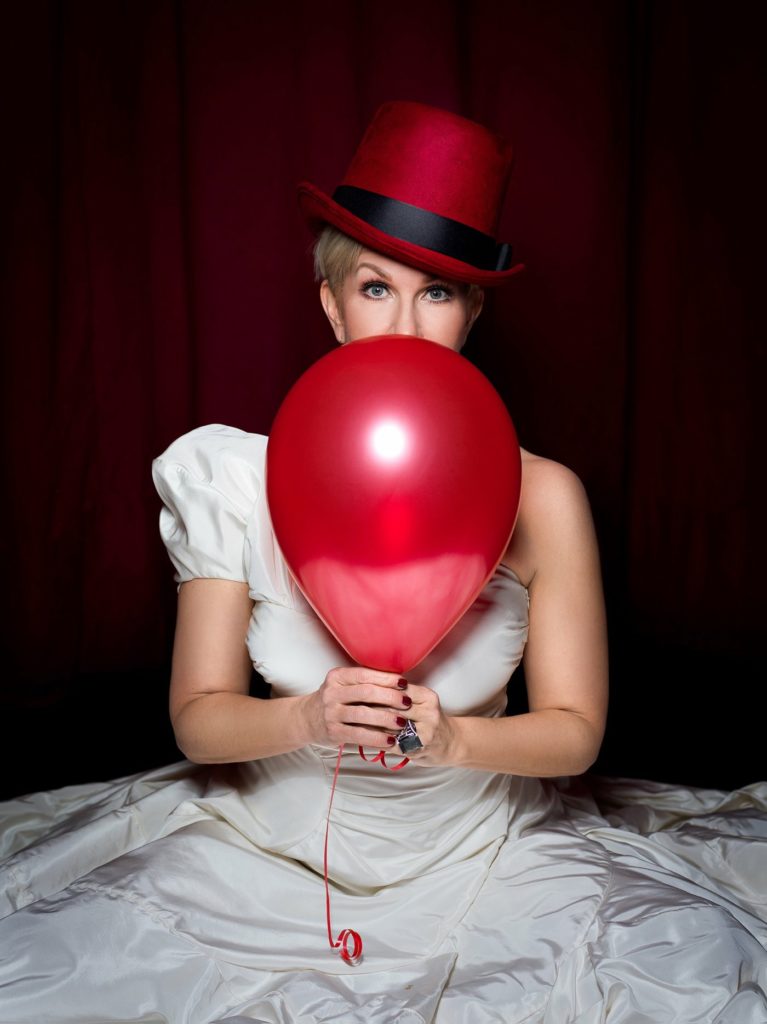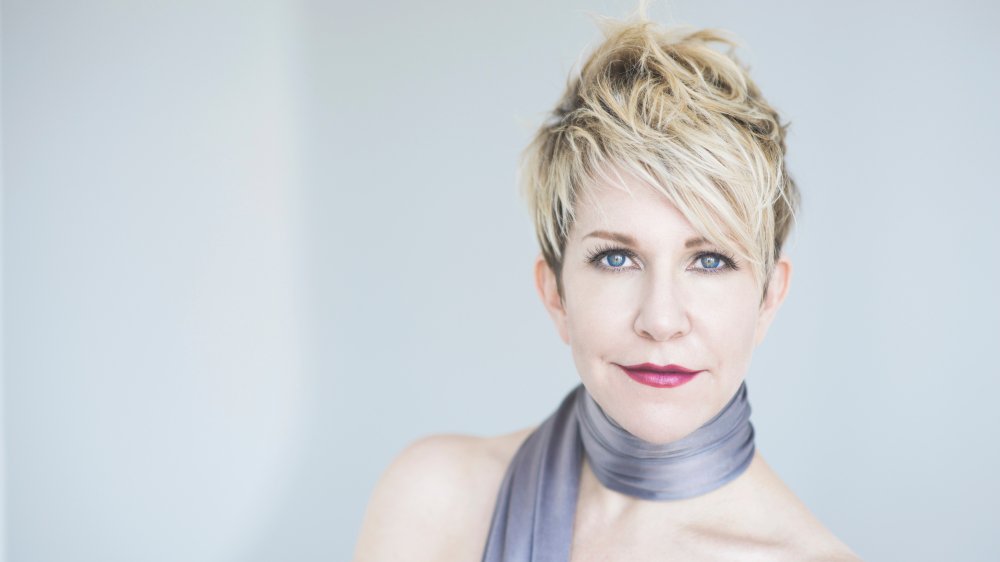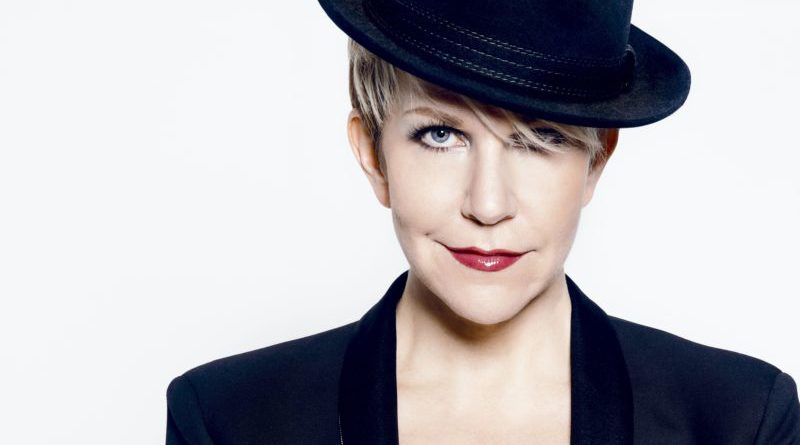INTERVIEW: Joyce DiDonato has a song to sing
Photo: Joyce DiDonato’s new album is called Songplay. Photo courtesy of the artist / Provided by Crossover Media with permission.
Acclaimed opera star Joyce DiDonato has a few songs to sing. In fact, she has a whole songbook of choices.
The singer, perhaps best known for her operatic work by such composers as George Frideric Handel, Wolfgang Amadeus Mozart, Gioachino Rossini and Gaetano Donizetti, has branched off with her latest recording effort, Songplay, which features opera, jazz and tango tunes that are performed in a unique style that combines improvisation with musical acumen.
“Craig Terry, the pianist, came to me with this idea,” DiDonato said in a recent phone interview. “And he said, ‘I just think it’s a tragedy that these Italian art songs that every beginning voice student tries to tackle when they’re 16, 17 years old, we end up working on them and just sort of trashing them because we don’t know how to sing. And we can’t make them work very well, and they’re hard. We end up hating these songs.’ And he said, ‘In reality, they’re actually quite fabulous pieces.’ So he sat me down. He goes, ‘I’m playing with this idea of ‘Caro mio ben.’” And I started singing with him, and before I knew it, in the third or fourth line, all of a sudden harmony was changing into something very jazz-like.”
DiDonato said she was blown away because this jazzed-up rendition of Giuseppe Giordani’s classic was still the composer’s original work, but now it had some jazz and soul to heighten its power. The singer followed Terry’s direction and traveled into the rabbit hole.
“And next thing I knew, we were programming it on recitals and then saying we’ve got to record it, and we’ve got to bring in a jazz ensemble to make this happen,” she said. “And that’s what we’ve done.”
Recording in a studio versus performing live — either in a costumed opera or recital — rely on different skills. DiDonato clearly has talents in both fields because she has built an illustrious career with numerous albums and many memorable turns on the stages of the world. Next month, for example, she is set to sing Sesto in Mozart’s La Clemenza di Tito at the Metropolitan Opera.
“I’ve been lucky to record a lot over the years, and it’s a very different skill than performing live,” DiDonato said. “It takes a little bit to get used to the microphone and then to get mentally over the idea that you have to achieve perfection because that’s death for an artist I think. When I’m in front of an audience, the whole idea is to communicate and to take a risk and to make it alive, and so I’ve tried to learn how to do that in the studio as well. In this case, it was a joy. It was a very different setup than normal. We had drums and trumpet and bandoneon, and trying to figure out the right kind of sound that would mix between the classical world and the jazz world, and it was all an experiment. And it was so inspiring and surprising.”

To create Songplay, DiDonato relied on past successes and failures in the crossover album market. One of her influences was Eileen Farrell’s I’ve Got the Right to Sing the Blues, which the opera singer called the pinnacle of this type of experimental cross-pollination between genres.
“The thing is [Farrell] sings it with her voice, and she goes into the style 100 percent,” DiDonato said. “But you still hear her, and so I told Craig from the very beginning, I said, ‘The only way this is going to work is if I sing this with my voice. I’m not going to morph into some kind of jazz singer overnight.’ And we had a lot of discussions in the studio about this, of trying to decide what was the best approach, so it’s still authentic and true to the song but also true to myself. I can’t predict how people will respond to this. I can’t predict with any recording that I knew whether people will like it or not, but I can only stay true to myself, keep the integrity that I have as a musician, as a singer, and do it with all my heart.”
A few of the tunes, including Allie Wrubel and Herb Magidson’s “The Masquerade Is Over,” were new to the mezzo-soprano. She said the song sounded familiar, but she had never heard it before. Other selections, such as Antonio Vivaldi’s “Col piacer della mia fede,” were well known to her.
“All of the other songs I knew in some degree or another, but I had never performed them,” she said. “I had never actually sung them myself, so that was a lot of joy and a lot of fun, very fulfilling to go in and find a way to make them my own.”
Many of the jazzed-up tunes are also laced with improvisation, which DiDonato appreciated about the music-making process. This unknown element actually is a connection she sees between opera and jazz.
“What I do in all my performances and certainly happens in the jazz world is the improvisation,” the singer said. “I come from the Baroque world and Bel Canto where we’re expected to ornament the vocal line … to change things up and keep it fresh in the moment. Certainly in the jazz world that’s even more true, and so in the live performances … each one so far has been really different. And the audience reaction is different, and it’s fun to read that and play with what they’re experiencing as well. So each one is alive and different and super-rewarding and super-fun.”
Growing up, DiDonato’s mezzo-soprano voice meant she was headed toward a career of Rossini, Mozart and Handel, but from day one, she took risks and tried different roles in the opera world. She celebrates her Bel Canto credibility, but is not restricted by it either.
“What I consciously decided from the very beginning was that I didn’t only want to do those,” she said. “I had observed some careers where people got stuck as a Rossini singer or a Handel singer, and I didn’t want that kind of predetermined trajectory to my career. So right away from the beginning I was doing world premieres, 20th century pieces, French repertoire. I really tried to branch out right from the beginning, so it was harder to call me a Rossini singer or a Handel singer. And also [I kept] always in my career song recital, which is I think one reason I can come to this kind of disc with some authority because a song is a song, whether it’s German, French or American. I’ve always held that in high regard, and it’s always fed me a lot as a musician. And so this seems like a natural trajectory from that.”

This branching off has resulted in a busy schedule of diverse musical offerings for DiDonato. She’ll move from her Songplay tour to her Met Opera role to master classes at Carnegie Hall. The diversity is important for the singer.
“I feel like it keeps me very fresh,” DiDonato said. “It keeps my musical appetite really percolating, and I keep learning so much. If I work, for example, with a string quartet, I have a very different experience than I do with a pianist or orchestra, let alone a jazz ensemble. I’m learning so much from the musicians that I work with, and that makes me a better musician. It makes me more well-rounded, and the joy I get to experience in exploring all these different genres and repertoire, I find it very fulfilling. I think I have a lot to offer all those different things, and in particular the master classes and the full operas. At the end of the day, I think it makes me a better performer to keep myself very well-rounded.”
She added: “I think each recording that I’ve done is a fingerprint or soundprint of that moment in time for me, but what I love about [Songplay] is it summarizes I think so much of what I’ve tried to do throughout my career, which is instill joy into the music-making process. And I feel like it’s been a reward for myself to just go in and celebrate the art of a great song, and to do it at the highest level with the most astonishing musicians, and I feel like that’s what we’ve done with this. I have to admit, maybe I’m an exception, or maybe I’m the rule with singers, but it’s hard to listen to my own recordings. … In general, I make a recording. I listen to the edit, and I often don’t even hear the final product. I put it on the shelf, and I say, OK, that was that. What’s next for me? This recording is actually something I’m turning to and listening to just for fun, and I think that says something.”
By John Soltes / Publisher / John@HollywoodSoapbox.com
Joyce DiDonato’s new album is Songplay. Click here for more information and her calendar of events in the coming months.

